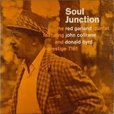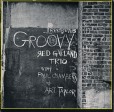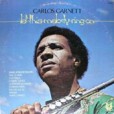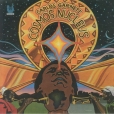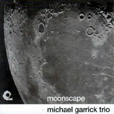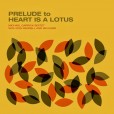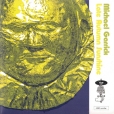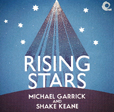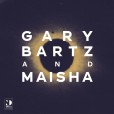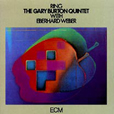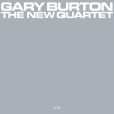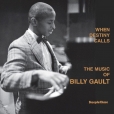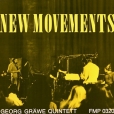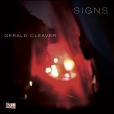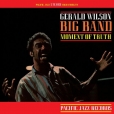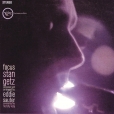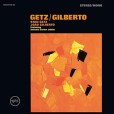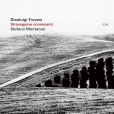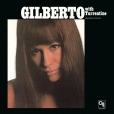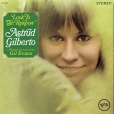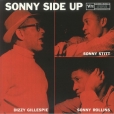Your basket is empty

‘An innovative and deeply moving blend of spiritual jazz and South Asian devotional music’, with contributions from Esperanza Spalding, Vijay Iyer, Shabaka Hutchings, Immanuel Wilkins…
CD from Soul Brother.
Beautifully executed as usual by Gearbox, this is the first release of a 1968 BBC Jazz In Britain recording, forerunner of the classic Argo LP Heart Is A Lotus, issued two years later. With Don Rendell and Ian Carr.
Combining two BBC Radio sessions, recorded at Maida Vale Studios in 1973 and 1978, with Norma Winstone, Henry Lowther, Art Themen, Tony Coe, and the gang.
Eight Garrick originals, including favourites from the Troppo and October Woman LPs, and an early, first showing for River Running and Galilee. Robin’s Rest only appears here.
‘Fabulous,’ says Record Collector.
Exotica, a bossa, and real-deal British bebop from 1964: four unissued cues featuring The Hastings Girl Choir, and four cuts with Coleridge Goode and Bobby Orr.
Mick Goodrick guitar, Pat Metheny guitars, Steve Swallow bass guitar, Bob Moses percussion, Eberhard Weber bass.
Luminessence Series.
Top-notch mid-seventies spiritual jazz; steeped in Trane. Championed by Jazzman.
Billy — aka William X, nowadays Khalim Zarif — was a Jazz Messenger. Around the same time as this recording, he was one of the Cosmic Brotherhood supporting Jackie McLean on his New York Calling LP, also for SteepleChase; another lost classic.
Warmly recommended.
‘The same band as New Movements hit the stage a year and a half later, again for FMP, recording Pink Pong. Even more adventurous and tightly wired, this version of Gräwe’s fivesome plays more concise compositions, a total of eleven of them, spread out almost evenly amongst band members. The resulting album is one of FMP’s absolute classics, simultaneously a nod at precursors like Alexander von Schlippenbach’s early groups and Manfred Schoof’s killer mid-sized ensembles, but also indicating a new path for a younger set of players. Steeped in a love of folks like Lennie Tristano and Steve Lacy, the band’s points of reference were diverse enough to make them stand out against some of the more exclusively hard-blowing Germans of the era.’
His 1976 debut, for FMP.
‘A classic hard-bop configuration with trumpet, saxophone, and rhythm section. Though some vestiges of that hard-bop feel permeate the music, it’s been fractured and expanded in its ambitions to include post-bop, freebop, free jazz, and free improvisation, all with an overall set of structures that betray Gräwe’s deep interest in contemporary classical forms. It is an audacious debut, one of the most thrilling jazz-related European outings to emerge from the FMP program. Tenor and soprano saxophonist Harald Dau is spectacular, reminiscent in places of the great Gerd Dudek’s work with Manfred Schoof Sextett — tough as nails, free within a blues-oriented context, totally inventive. He’s matched by lithe trumpeter Horst Grabosch, and Gräwe’s rhythm team is impeccable, with Hans Schneider’s bass and Achim Kramer’s drums. The album kicks off with a 22-minute-long rollercoaster ride written by Gräwe, and continues with two more long tracks by Dau, all of them featuring thrilling interplay and brilliant tunes.’
Of all his albums, this was Stan Getz’ favourite. Ours, too.
Freed from the formal orthodoxies of small-group bebop, and revelling in the freedoms opened up by Eddie Sauter’s thrilling strings-based arrangements, lyrical improvisation pours out of the saxophonist (with Lester Young coursing through as per). The music shimmies devil-may-care through jazz, classical, soundtrack, show-tune, and the rest.
Try the dazzling opener. A theme from Béla Bartók’s Music for Strings, Percussion and Celesta is mashed into skittering, paranoid funk, with a killer spot for Roy Haynes. And next up, something quite different, a quiet, complexly tender tribute to Getz’s mum, exquisitely proffered. Just a shame Bill Evans wasn’t sitting in.
Original, knockout; very warmly recommended.
‘Verve By Request.’

